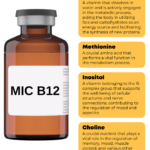On February 6, 2024, a research group called Epic Research shared findings from a study they did, looking at a specific kind of medicine called GLP-1 receptor agonists. These medicines are usually given to people who are overweight or have type 2 diabetes to help them lose weight or manage their diabetes. The study found something interesting: people who take these medicines might be less likely to get diagnosed with anxiety or depression.
GLP-1 drugs are not new; they’ve been approved by the FDA (the agency that checks if foods and drugs are safe to use in the U.S.) because they can help people lose weight and control diabetes. Researchers have already noticed that these drugs can also be good for the heart and might even help with mental health. Even though there are some side effects to these drugs, the new study suggests there might be more good things about them, especially for mental health, which could lead to more people using them.
The study looked at three specific GLP-1 receptor agonists called semaglutide, liraglutide, and tirzepatide. While all three are approved for helping with weight loss, only semaglutide and liraglutide were considered in this study for people who don’t have diabetes. The study found that, compared to people not taking these drugs, those taking semaglutide, whether they had diabetes or not, were less likely to be diagnosed with depression. Diabetic patients taking tirzepatide were much less likely to feel anxious.
However, the study didn’t say that these drugs directly prevent depression or anxiety. It just noticed that people taking them had lower chances of getting these diagnoses. More research is needed to understand why this happens.
In simpler terms, this study found that some medicines usually used for weight loss and diabetes might also make it less likely for people to experience depression or anxiety. This is a hopeful finding, but scientists are still trying to figure out exactly how these medicines might affect mental health.


